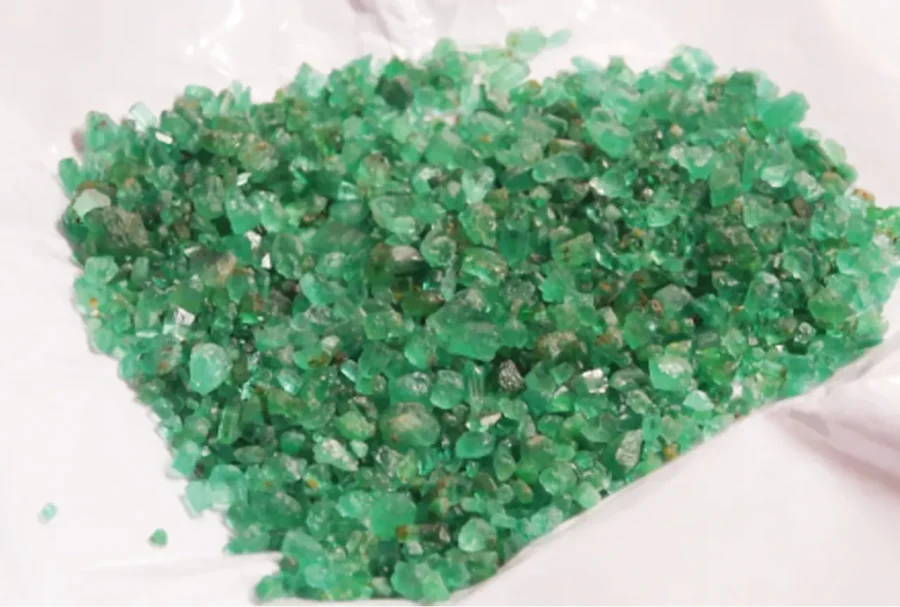Qadir Qiafa, deputy head of Iran’s Chamber of Commerce, said that precious and semi-precious stones mined in Afghanistan are smuggled into Iran and sold.
He added that Iran is interested in investing in Afghanistan’s mining sector; however, sanctions imposed by the United States have affected Iran’s investments in Afghanistan.
The Islamic Emirate has announced efforts to prevent the smuggling of mineral resources, particularly precious stones from Afghanistan, and emphasized cooperation with Iran to stop the trafficking.
Zabihullah Mujahid, the spokesman for the Islamic Emirate, said: “The Islamic Emirate of Afghanistan is making its utmost effort to completely stop smuggling. In this regard, cooperation with Iran is also needed. We have instructed our forces to prevent the smuggling of prohibited items and to pay serious attention to this issue.”
The Chamber of Commerce and Investment has been focused on creating markets for the sale of Afghan mineral materials, especially precious and semi-precious stones, by the Islamic Emirate to prevent smuggling.
Jaan Agha Naveed, spokesman for the Chamber of Commerce and Investment, said: “At that time, we had specific markets in the former Soviet Union, the United States, and India. Now we can reactivate these markets and also create opportunities within Afghanistan for processing and selling locally.”
At the same time, several Iranian traders said that the Afghan lapis lazuli, ruby, sapphire, and emerald markets in Iran are particularly booming and are mostly used in decorating precious jewelry.
These traders are calling for the establishment of a joint standard factory for processing precious and semi-precious stones between Afghanistan and Iran within Afghanistan.
Ali Akbar Sheibani Fard, an Iranian trader, said: “A joint operation should be conducted between Afghan and Iranian traders at a specific site where extraction and processing can be done, and from that site, it can be sent to other countries.”
Mortaza Jalali, another trader, said: “Lapis lazuli is very useful; agates are being imported and have good use.”
Previously, the Ministry of Industry and Commerce had reported that in 1402, precious stones worth more than $2 million were exported to Pakistan, China, Uzbekistan, Switzerland, the United Arab Emirates, and Germany.
According to officials, the lack of a market has led the companies into a recession and a large number of workers have lost their jobs.
“Our activities have declined by around 90 percent and now only 10 to 15 percent of our activities are going on and the rest has stopped,” said Nasratullah Azizi, head of the union.
On the other hand, the Ministry of Mines and Petroleum announced a call for bids for over 20 small marble mines in Kandahar, Nangarhar and Kunar provinces and called for investment in those mines.
“Most of our factories are closed due to the lack of raw materials, and the source for the raw materials of our stone processing factories are the mines, and no contract has been signed yet regarding those mines,” said Mohammad Karim Azimi, executive director of the Kabul Chamber of Industries and Mines.
According to the owner of the marble processing factories, there were more than one hundred marble mining factories in the country, but currently only 10% of them are operating.
“50 employees were working with us but now only 12 employees are working and that is only to keep the mine active,” said Abdulbari Wardak, a factory owner.
In the meantime, a number of the owners of the stone factories said that due to the lack of a proper market their factories have ceased operations.
“In fact, most of the construction companies have closed and no one builds houses today,” said Mahram Ali Jawiad, an owner of the factory.
Meanwhile, officials at the Afghanistan Chamber of Mines and Industries urged the Ministry of Mines and Petroleum to reduce the charges on marble stone extraction so that the investors can invest in this sector. Currently, the Ministry of Mines and Petroleum charges 500 Afs for every ton of marble stone being extracted.—Tolonews










